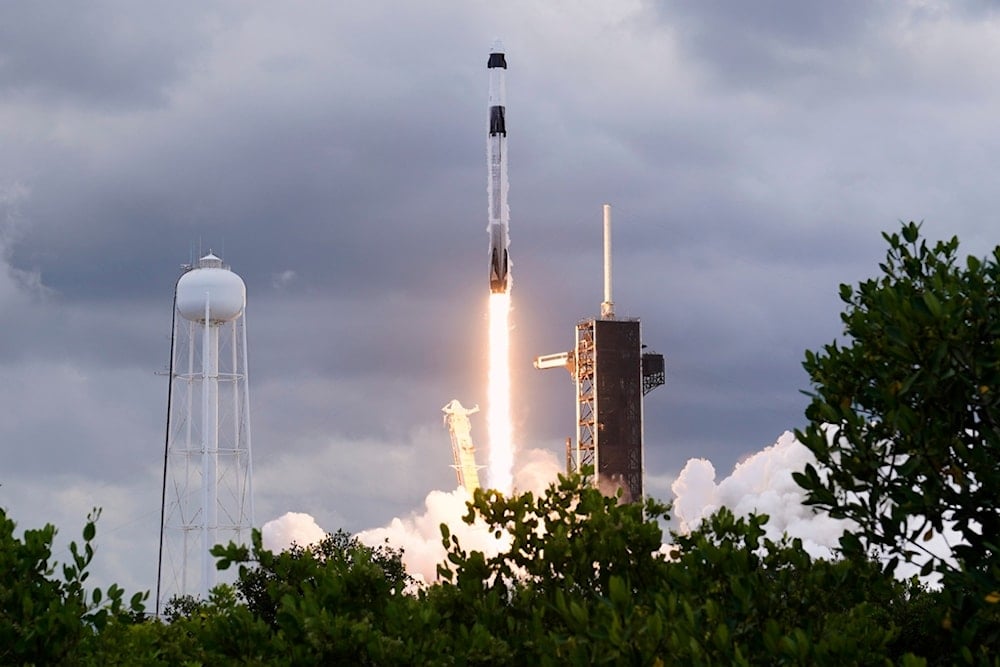German scientists pioneer ultra-powerful, eco-friendly rocket fuel
German chemists have synthesized hexanitrogen (N₆), the most energy-dense nonnuclear molecule ever created, which could revolutionize rocket propulsion with a clean, nitrogen-based fuel, though practical use will require further testing and significant investment.
-

A SpaceX Falcon 9 rocket with a Crew Dragon capsule lifts off from Pad 39-A at the Kennedy Space Center, Friday, Aug. 1, 2025, in Cape Canaveral, Fla. (AP Photo/John Raoux)
A team of chemists at Germany’s Justus Liebig University in Giessen has synthesized a groundbreaking molecule that could redefine the future of rocket propulsion.
Led by organic chemistry professor Peter Schreiner, the researchers created a substance known as hexanitrogen (N₆), a cluster of six nitrogen atoms with unprecedented energy density.
Described as the most energy-rich non-nuclear compound ever produced, N₆ could form the core of a next-generation rocket fuel that dramatically reduces environmental impact.
"The hope is that we can create a nitrogen-powered rocket that basically emits only air," Schreiner said during an interview with German broadcaster n-tv. "So, it is very different from Elon Musk’s rockets, for instance, which run on a methane-oxygen mixture and release large amounts of CO₂, creating an environmental burden."
Nitrogen propellant
The molecule, which remains stable only at cryogenic temperatures around minus 196 degrees Celsius, was isolated in pure form under tightly controlled lab conditions. The findings were published in Nature on June 11.
For safety reasons, researchers are currently barred from detonating the substance in the lab. However, Schreiner’s team has partnered with a specialized facility in Dresden to begin preliminary ignition tests in an outdoor environment.
"There is an outdoor lab there where we can produce N₆ and conduct ignition tests. That is when we will find out if the substance can be used as rocket fuel," he explained.
Remarkable advance in basic chemistry: Researchers created hexanitrogen, six bound nitrogen atoms. It's the most energetic molecule ever made!
— Corey S. Powell (@coreyspowell) June 21, 2025
If it can be made & stored in bulk (big if) it could be a powerful rocket fuel or energy storage material.https://t.co/eOQsxNIXqM pic.twitter.com/M2IvALPUdO
Propulsion potential
Despite the molecule's immense promise, Schreiner acknowledged the need for substantial financial investment and further development before the fuel could be used in an operational setting.
"Many engineering nuances must be considered in order to put it into a rocket. But with enough money and provided that everything goes well, we could build a test rocket in 3 to 5 years," he noted.
While the substance’s military potential is clear, Schreiner expressed surprise at the lack of outreach from defense circles. "Certainly exists," he said of its defense applications. "But no military research institute has contacted me yet."
If successful, N₆ could usher in a new era of cleaner, more efficient propulsion technologies for space travel and beyond.
Read more: Fungi absorb about third of total greenhouse gas emissions: Study

 3 Min Read
3 Min Read








